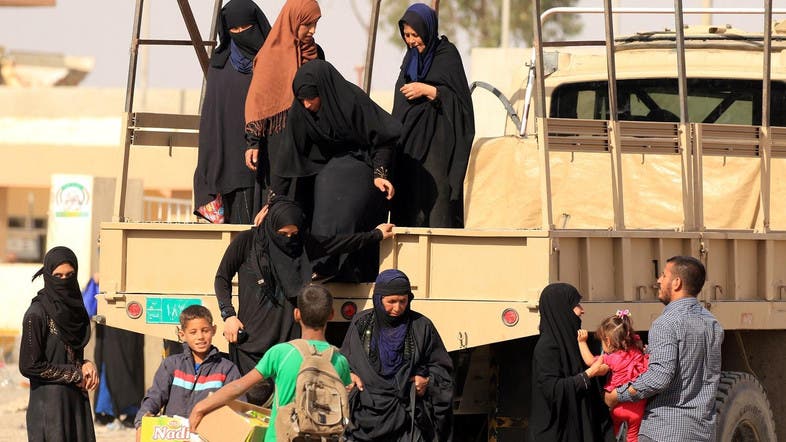Iraqi forces call on civilians to flee Mosul’s ISIS-held Old City
The Iraqi air force dropped leaflets on Friday urging residents in the ISIS-held Old City center of Mosul to flee, raising fears among humanitarian groups for the safety of desperate civilians there.
The leaflet drop, announced in an Iraqi military statement, signaled that the decisive offensive to dislodge the militants from their remaining enclave in the northern Iraqi city was imminent.

The US-backed offensive on Mosul, now in its eighth month, has taken longer than planned as the militants are dug in among civilians, fighting back with booby traps, suicide cars and motor-bikes, snipers and mortar fire.
Civilians trapped behind ISIS lines face a harrowing situation with little food and water, no electricity and limited access to hospitals.
“Iraqi air force planes dropped hundreds of thousands of leaflets a short while ago on the non-liberated areas … urging citizens to exit through safe corridors,” an Iraqi military statement said.
Desperate residents
A resident in Farouq, an Old City neighborhood, sounded desperate in a telephone interview. “We’re waiting for death at any moment, either by bombing or starving,” he said, asking not to be identified for his safety. “Adults eat one meal a day, either flour or lentil soup.”
The humanitarian group Oxfam said the leaflets suggested that the Iraqi forces’ move on the Old City in Mosul “is imminent … This could involve an official announcement from the military in the coming days”.
“Save the Children is deeply concerned that any calls to leave west Mosul will mean that civilians, particularly children, are in significant danger of being caught in the crossfire,” another aid organisation said in a statement.
The militants have laid sheets of corrugated metal over pebbles in the alleys as an early warning system, residents said. The grinding noise produced by treading on it would alert them to any troop movements or civilians trying to escape.
The United Nations last week said up to 200,000 more people could flee Mosul as fighting moves to the Old City.
Residents said millet, usually used as bird feed, is being baked like rice as food prices increased by ten folds. People were seen collecting wild mallow plants in abandoned lots and also eating mulberry leaves and other types of plants.
About 700,000, about a third of the pre-war city’s population, have already fled, seeking refuge either with friends and relatives or in camps.
Prime Minister Haider al-Abadi had initially hoped Mosul would be retaken by the end of 2016.
The fall of Mosul would mark the end of Iraqi half of the “caliphate” declared nearly three years ago by ISIS leader Abu Bakr al-Baghdadi, which also covers parts of Syria.
Iraqi military commanders had expressed hope of taking control of the Old City’s Grand al-Nuri mosque, from which Baghdadi declared the caliphate, before the fasting month of Ramadan, which starts on Saturday or Sunday in Iraq.
Long drawn-out insurgency
The insurgency is expected to continue in the sparsely populated desert region along the Syrian border even if Mosul is fully captured.
Iranian-backed Shi’ite paramilitary forces are fighting ISIS in that part of the country where Baghdadi is believed to be hiding, according to US and Iraqi officials.
The Iraqi Shi’ite paramilitary force, known as Popular Mobilisation, is theoretically under Abadi’s command.
On Friday, it announced it had captured the Sinjar military base, cutting the road between two cities that remain under ISIS control west of Mosul, Tal Afar and Baaj, and getting closer to the Syrian border.
Source:Alarabiya/English